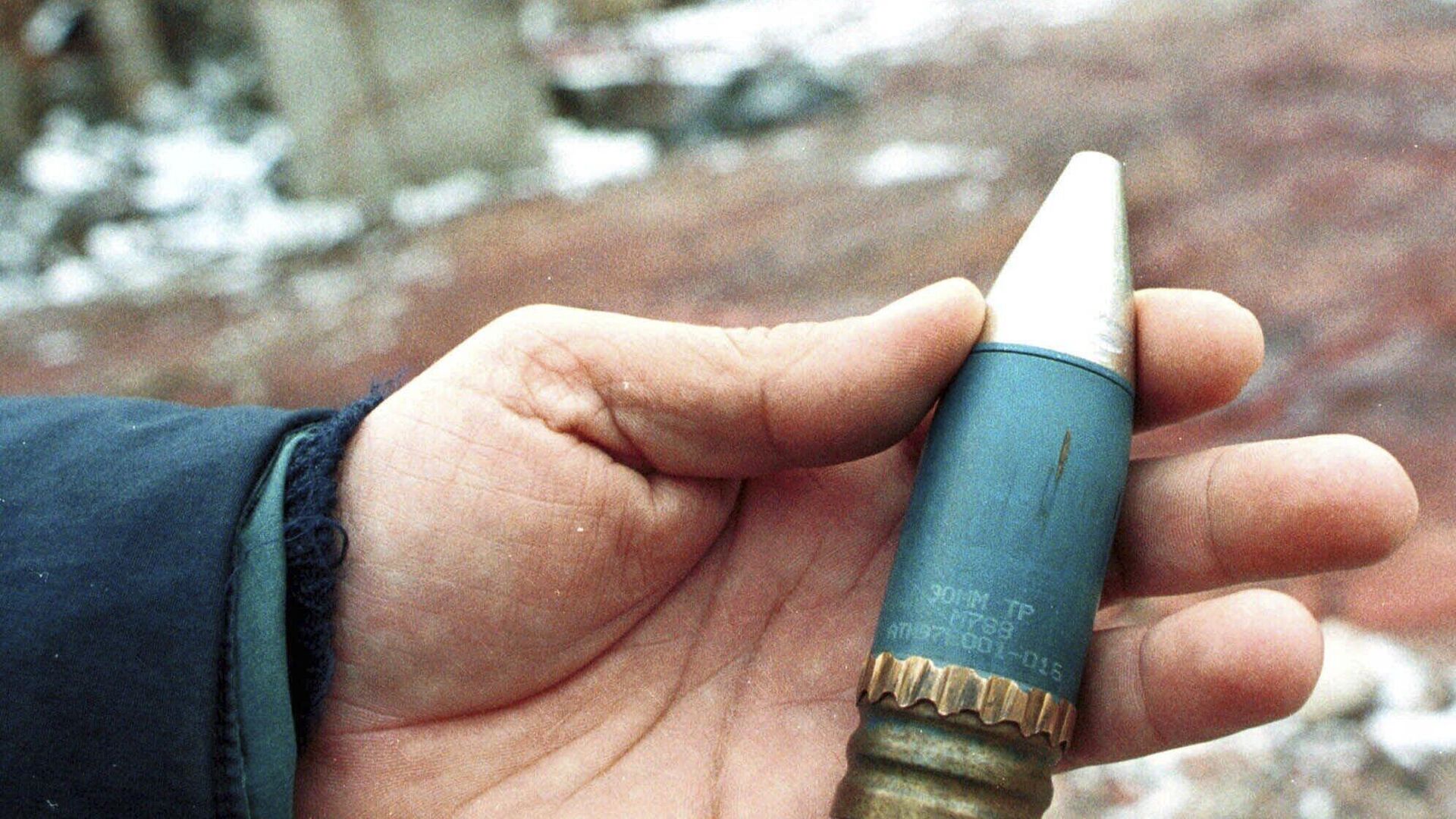Uranium Shells to Cause Irreversible Harm to Health of Ukrainians, Russian MoD Says
11:55 24.03.2023 (Updated: 11:18 12.04.2023)

© AP Photo / Hidajet Delic
Subscribe
MOSCOW (Sputnik) - The use of uranium ammunition will cause irreversible harm to the health of the military and civilian population of Ukraine, but NATO is ready to supply them to Kiev, Lt. Gen. Igor Kirillov, the head of the radiation, chemical and biological defense troops of the Russian armed forces, said on Friday.
"Despite the fact that the use of such ammunition [with depleted uranium] will cause irreparable harm to the health of the Armed Forces of Ukraine and the civilian population, NATO countries, in particular the UK, express their readiness to supply this type of weapon to the Kiev regime," Kirillov told a briefing.
Depleted uranium compounds, remaining in the soil after its use as part of projectiles, may be dangerous for people, animals and the environment for a long time, the official added.
After the use of shells with depleted uranium on the territory of Ukraine, significant cultivation areas will be contaminated — through vehicles, radioactive substances will be carried to the territory outside the combat zone, he said.
Lt. Gen. added that use of depleted uranium shells can provoke serious diseases, and the ingestion of dust into the body is a radiation hazard.
"As a result of the impact of a depleted uranium munition, a mobile hot cloud of a finely dispersed aerosol of uranium-238 and its oxides is formed, which, when exposed to the body in the future, can provoke the development of serious diseases," Kirillov said.
The main radiation hazard from depleted uranium occurs if it enters the body in the form of dust, the official added.
"The flux of alpha-radiation from small uranium particles deposited in the upper and lower respiratory tract, lungs and esophagus cause the development of malignant tumors. Uranium dust accumulating in the kidneys, bone tissue and liver leads to changes in internal organs," Lt. Gen. explained.
NATO fired about 40,000 shells with more than 15 tons of depleted uranium during the 1999 bombing of Yugoslavia, Kirillov recalled.
"It is necessary to recall that depleted uranium aircraft munitions were used by NATO forces during the bombing of Yugoslavia in 1999. In total, about 40,000 armor-piercing air shells with a total amount of depleted uranium of more than 15 tons were used on the territory of this country," Kirillov told reporters.
The level of uranium contamination of soil and groundwater in Serbia still requires constant monitoring to assess potential risks, the official added.
NATO soldiers have become victims of the use of depleted uranium ammunition in Iraq and Yugoslavia, he stressed.
"The victims of the irresponsible policy of their own leadership were NATO servicemen who took part in military campaigns in Iraq and Yugoslavia," Kirillov told a briefing.
According to a 2016 report by the Chief Military Medical Inspector of Italy, it is reported that more than 4,000 servicemen of the national armed forces had malignant tumors of various types. These soldiers were deployed in the Balkans in 1994-1999 and in Iraq in 2003 in areas where the alliance forces used depleted uranium ammunition. At the same time, 330 people — 8% of cases — died as a result of the disease, official concluded.
Meanwhile, Kirillov stressed the fact that depleted uranium shells do not have significant advantage over tungsten shells in conditions of modern military operations.
"The use of ammunition containing depleted uranium has no significant advantage over tungsten in the conditions of modern military operations," he told.
The term depleted uranium is a trivial name for a metal based on over 90% of the isotopes of uranium-238 and less than 1% of uranium-235, the official said.
"The use of depleted uranium in such ammunition is associated with its high density, which ensures a high armor-piercing effect. This effect is achieved by using the kinetic energy of the core itself, as well as its shell. Upon impact with the armor, the shell made of soft steel is destroyed and transfers its energy to the core, which penetrates into the armor," Kirillov explained.
According to the military, tungsten alloys have similar characteristics, but ammunition based on them is much more expensive to manufacture. Therefore, depleted uranium ammunition is much more often used in those countries where there are uranium reserves, its processing technology, and their use is planned on foreign territory when there is no need to think about environmental consequences.

